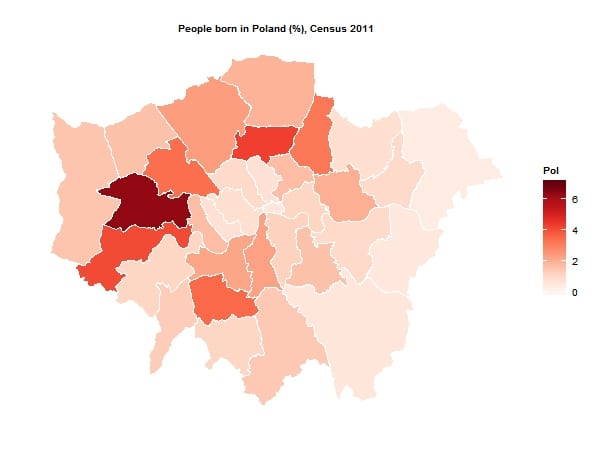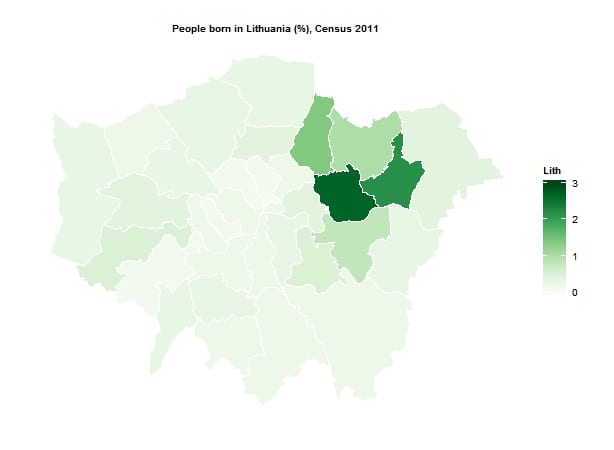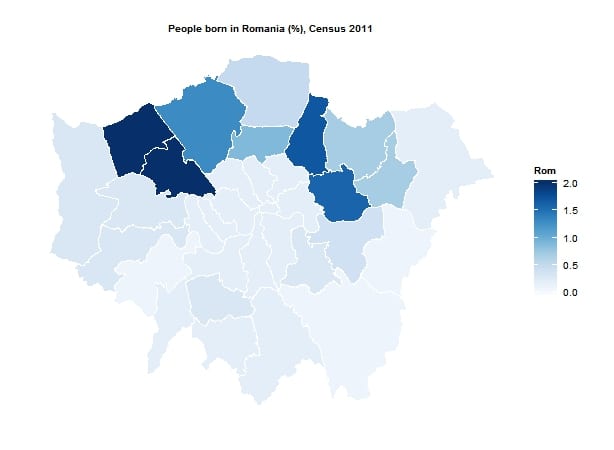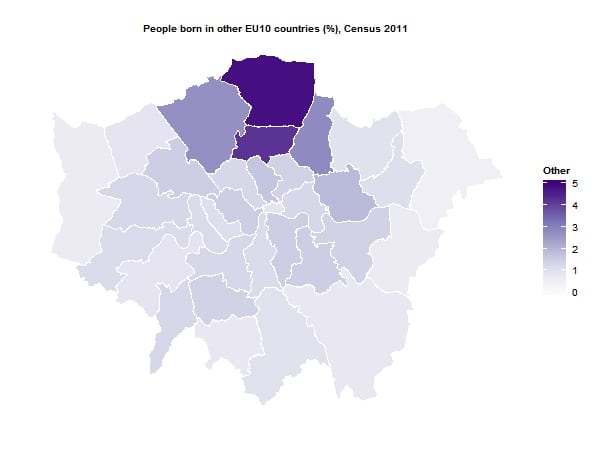Where do London’s New Europeans live?
By Sean L Hanley, on 13 January 2013
Newly released data from the 2011 Census reveals some interesting patterns about London’s Central and East Europeans, finds Allan Sikk
I’ve been waiting for some time for the UK 2011 census data to come out to give me a chance to look at the distribution of Londons ‘New Europeans’ – people from the ten accession countries that joined the EU in 2004-7 – and to use the R open source statistics package to visualise data geographically.
Overall, people born in the EU accession state make up 4.5% of the population of London. However, but the picture is quite diverse across boroughs and across individual ‘sending’ countries.
There’s an East European collar around the Inner London boroughs – particularly North of the river. Haringey tops the list with 9% born in accession countries), with Waltham Forest and Newham closely behind. Ealing to the West has, of course, long had a vibrant Polish community that is still going strong (6.4% of the population):
Interestingly, those born in Lithuania – probably the third largest group here) – end to live in four North Eastern boroughs – you’ll find one in every two London Lithuanians in Barking & Dagenham, Waltham Forest, Redbridge, and, in particular, a stone’s throw from the Olympic stadium in Newham
Many Romanians also live in these four boroughs, but, interestingly, Brent and Harrow in North West London have an even stronger Romanian presence:
Data on the other seven accession countries is so far not available, so it is difficult to tell which East European (or Finno-Ugric) languages you’re most likely to hear in Enfield where no less than 4.8% of population were born in the other seven Accession Countries:
Allan Sikk is Lecturer in Baltic Politics at UCL-SSEES. His research covers numerous aspects of electoral and party politics. He also has a strong interest in political science methodology and the use of quantitive and mixed methods.
This piece first appeared on Allan Sikk’s blog and is reproduced with permission.
Note: This article gives the views of the author(s), and not the position of the SSEES Research blog, nor of the School of Slavonic and East European Studies, nor of UCL.
 Close
Close






